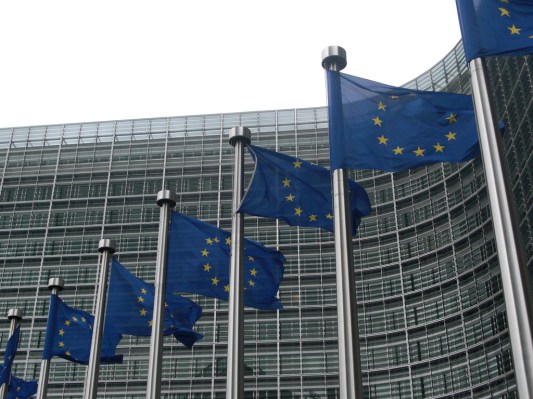The European Commission’s proposals to reform the region’s copyright rules, published in draft form today, have been criticized by tech companies and digital rights groups as regressive and a missed opportunity to modernize hopelessly outdated rules.
The Open Rights Group accused the EC of ignoring EU citizens responses to an earlier consultation on the reform, and trying to bring in regressive rules that will force private companies to police the Internet.
“The Commission’s proposals would fail to harmonise copyright law and create a fair system for Internet users, creators and rights holders. Instead we could see new regressive rights that compel private companies to police the Internet on behalf of rights holders,” said its executive director Jim Killock in a statement.
A big point of concern for many critics is the EC seeking to shift the responsibility for identifying copyrighted content by requiring Internet companies that host user uploaded video, such as YouTube and Facebook, to proactively check for copyrighted material, rather than waiting to receive a take down request from a rights holder, as is the case now.
In a blog post responding to the draft directive, Google’s Caroline Atkinson, VP of global policy, warned this shift would place big burdens on Internet companies. Although the company does also find “things to like” in the proposal (not least the EC taking note of its content-management tech, YouTube Content ID).
“Today’s proposal suggests that works including text, video, images and more must be filtered by online services. This would effectively turn the internet into a place where everything uploaded to the web must be cleared by lawyers before it can find an audience,” warned Atkinson.
The draft directive also includes a proposal for a new right for news publishers covering digital use of their content for 20 years. Unsurprisingly, Google is not a fan of this.
“We’re also disappointed to see a proposal for a new right for press publishers, despite tens of thousands of voices — including ours — calling for a different approach,” wrote Atkinson.
This extended right is similar to ancillary copyright laws already enacted by governments in Germany and Spain which target search engines displaying snippets of news stories.
The law as enacted in Spain included a mandatory fee for displaying publisher snippers and led to Google to pull its Google News service in the country. While many Germany publishers waived their rights in favor of retaining the traffic Google sends their way.
Pirate party MEP Julia Reda dubbed the proposed new news publishers right an “attack on the link”, warning it would not work.
Also criticizing this part of the proposal, Mozilla’s Denelle Dixon-Thayer suggested it could negatively impact startups by limiting the free flow of information online.
“This establishment of a new exclusive right would limit the free flow of knowledge, cripple competition, and hinder start-ups and small- and medium-sized businesses,” she wrote.
“It could, for example, require bloggers linking out to other sites to pay new and unnecessary fees for the right to direct additional traffic to existing sites, even though having the snippet would benefit both sides.”
The Open Rights Group also hit out at the EC’s failure to introduce an EU-wide freedom of panorama exception to harmonize the region’s rules and allow members of the public to share pictures they’ve taken of public buildings and art.
“While this right exists in the UK, many European countries do not have this exception, which means that innocuous holiday snaps can infringe copyright,” noted Killock.
Despite failing to create regional harmony by ignoring calls to create a panorama exception, the Commission is proposing a new copyright exception for educational establishments to use materials to illustrate teaching “through digital tools and in online courses across borders”.
Another new mandatory EU exception would also allow cultural heritage institutions to preserve works digitally. And there’s a new right for text and data-mining of copyrighted material — but only for research purposes (not for commercial use cases).
The copyright reform proposals — which the EC details at greater length here — will be submitted to the European Parliament for debate, where they are likely to face stiff opposition from the likes of Reda.
Any directive would also need to be adopted by the Council before becoming law so there’s a long road ahead for the copyright reform process — so expect the lobbying and campaigning to step up on all sides. The EC did recently U-turn on an aspect of a separate data roaming proposal, after those plans received some bad press, so there’s a chance the copyright reforms could similarly shift, depending on the reception.
“Our proposal will ensure that more content will be available, transforming Europe’s copyright rules in light of a new digital reality,” said the EC’s VP for the Digital Single Market, Andrus Ansip, in a statement today announcing the draft plans.
“We are proposing a copyright environment that is stimulating, fair and rewards investment,” added Günther Oettinger, Commissioner for the Digital Economy and Society.
Last week Europe’s top court issued a ruling on another copyright matter, related to hyperlinking. That judgement suggests European courts could interpret the sharing of a hyperlink as a copyright breach in itself — if the person is sharing a link to illegally hosted copyrighted content for a for-profit purpose or if they know the content they are linking to is copyrighted.
